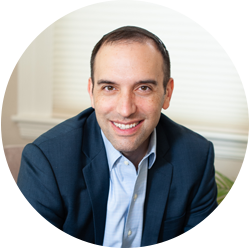Dear friends,
We are still reeling from last week’s attack on the U.S. Capitol, which reflected our country at its worst. Yet, we are looking forward to Martin Luther King Jr. Day and Inauguration Day next week, both of which inspire hope for a better future.
These days also remind us that citizenship is a sacred responsibility. Democracy is government by the people and for the people. The choices we make — in our speech and in our actions — shape the character of this country and create the conditions under which our leaders project either their darkness or their light onto us and the world. Leaders like Dr. King call us to come together in service of higher principles and ideals. In his words, “Everybody can be great because anybody can serve.” (For those who are able, here are some opportunities to volunteer locally with the Jewish community.)
As we remember Dr. King and look toward the inauguration, the Torah portions we are reading on Shabbat about the exodus from Egypt could not be more relevant.
The exodus story features Pharoah, a tyrannical leader who is worshipped as a god in Egyptian culture, who believes he is beyond reproach, who hardens his heart to the suffering of others, and who, rather than take responsibility and change his ways, brings his whole civilization down with him. Pharaoh cannot recognize higher ideals or a greater good to which his leadership is in service. Refusing to free the Israelites, he thinks only of himself and his own power.
When Moses approaches Pharoah and tells him to “Let my people go,” he does so as a servant leader, the opposite of Pharoah. Quoting God, Moses demands: “Shalach et ami v’yaavduni — Let my people go so they can serve Me (God).” We often leave out the second half of this phrase, but it is critical for understanding the Biblical approach to freedom, responsibility, and leadership. Release my people from bondage in order for them to serve a higher power, higher principles, ideals, and values.
Our country is in need of healing and repair, which will require a long, painful process of reckoning and wrestling, accountability, and empathy. A good place to start is by asking ourselves, one another, and our leaders the questions that liberation requires of us: Freedom for what? Power for what? What higher principles and purposes do our lives and leadership serve?
A community that puts these questions at the center of its politics and public conversation is on the way to building a more caring, more compassionate, more equitable, and more just world. This is my prayer as we prepare for the week and the years ahead.
Shabbat Shalom,
Rabbi Marc Baker

About the Author
CJP President and CEO Rabbi Marc Baker is an educator, writer, and leadership mentor who is devoting his life to Jewish learning and building Jewish communities.
